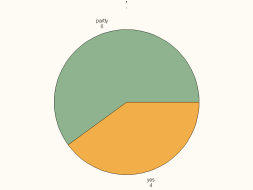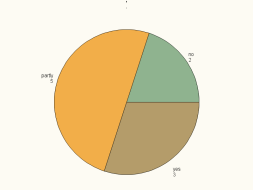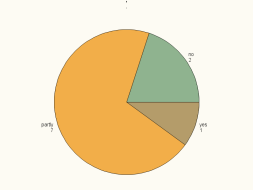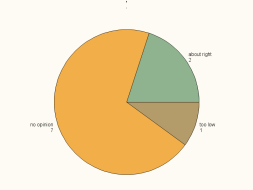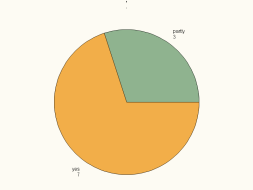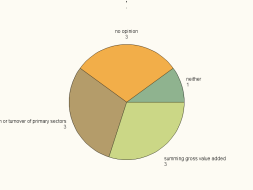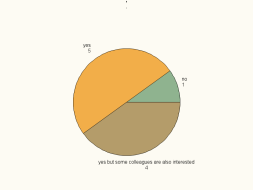follows meeting on29 September 2015
The EU's blue economy covers market activity taking place on European territory that is intrinsically linked to the sea. Do you agree?
| affiliation | country | answer | reply |
|---|---|---|---|
| Department for Business, Innovation & Skills | UK | partly | Supply chains and many services provided for the marine sector are located away from coastal areas. |
| Directorate-General for Maritime Policy | Portugal | yes | At national level we consider a broader definition for the Ocean Economy: Set of economic activities carried out in the sea and others, dependent upon the sea, including non tradable marine ecosystem services. |
| Federal Ministry of Agriculture, Forestry, Environment and Water Management; Directorate EU Coordination Environment | Austria | yes | |
| customs | France | yes | |
| Luxembourg Maritime Administration | Luxembourg | partly | European maritime activities are performed worldwide, value is not only created within the European territory but also abroad: deep sea mining, transportation, petroleum exploration, marine research etc. Part of these activities is supported by European headquarters and executed by European workers / expats. If these activities are however part of those intrinsically linked to the sea, we do agree to the statement above. |
| Ministry of infrastructures and transport - DG VPTM | Italy | partly | We refer to the activities listed in directive 2014/89/EU establishing a framework for maritime spatial planning, not pertaining exclusively to market sector. |
| SEMRU, NUI Galway, Marine Institute, Maritime Affairs Attaché, Irish Department of the Environment | Ireland | partly | Net factor income from the rest of the world (NFIRW) is an important concept in national income accounting. In the present case it refers to income received from European marine sector factors of production working abroad less income repatriated by foreign-owned factors employed in the European marine economy. For example there may be Irish deep-sea survey companies providing their services in South America. The majority of the income (or output) from such service will be felt in Ireland. Similarly ship leasing services in Asia may be supplied by Dutch companies. If you only include market activity taking place on European territory, as in the definition, you will exclude such activity which may be substantial. Also note that in the NACE codes, something like ship leasing will be counted but it relates to all leasing through the European companies. Those companies may have shops fronts for leasing in Asia or Australia but the output will be going through the books in Europe. To strip out activity such as this from the NACE codes, that is not taking place in European territory, would be very difficult. Perhaps consider leaving out the geographical reference. |
| Support Unit Subdiretorate-General for energy, industrial affairs and environement. MiNistry for Foreign Affaairs and Cooperation | Spain | yes | We agree with the definition although it is more a list of activities then a definition. But logically it is really difficult to have a definition which is acceptable to everybody, and therefore the idea of having a list instead is an intelligent solution. |
| Ministry for the Economy, Investment and Small Business | Malta | partly | Malta acknowledges the importance of the blue economy as contributor to economic growth and job creation, as well as representing the maritime dimension of the Europe 2020 strategy. Malta welcomes the discussion on the measurement of the size and dynamics of the blue economy. The blue economy is also one of the priority areas for the Maltese Government, and in fact an Integrated Maritime Policy has been drawn with a view to spearhead and coordinate Government activity in this field. Malta acknowledges that the definition of the blue economy put forward by the CION in the non paper somewhat covers the areas of blue growth put forward by Malta's Integrated Maritime Policy (IMP). However, Malta believes that the term should be maintained as flexible as possible; a prescribed and restricted definition should not be established therefore allowing Member States and eventually the respective market to evolve accordingly. Member States should "define" the term and not move towards the establishment of an EU wide definition allowing new and emerging sectors to be "tagged" as part of the Blue Economy. Here below is Malta's definition for the Blue Economy:- "The maritime sector encompasses an immense variety of activities that are directly or indirectly linked to the sea. The ancillary and support services associated with marine operations are significantly far-reaching and have a considerable impact on Malta's economy and labour market. The growth of maritime activities within the Island's territorial waters will automatically have a positive spill-over effect on inter-related economic sectors, leading to an improvement of Malta's standard of living. The output from blue economy must therefore take into consideration the contribution of these other, sometimes seemingly unrelated, sectors". Malta needs to point out that the discussion revolved too much on the definition of the blue economy, the main sectors that make up the blue economy, and the measurement and estimation methods of the blue economy, but lack of importance was given to data collection, and the problems MS may encounter in this regard. Importantly, Malta needs to bring to the attention of the CION that discussions are currently underway with national statistical authorities and line departments with regards to the availability of EU SECRETARIAT 9 October 2015 MINISTRY FOR EUROPEAN AFFAIRS AND IMPLEMENTATION OF THE ELECTORAL MANIFESTO the statistics outlined in the non paper. Preliminary discussions indicate that Malta is facing a constraint with regards to SBS data, given that national data for Malta is compiled at 2 digit level, contrary to what is presented in the non paper, which is mostly compiled at 3 digit and 4 digit level. Malta is exempt from publishing SBS data at NACE 3 and NACE 4 digit level by size class due to the CETO flag - as stipulated in EC Regulation No. 295/2008 on SBS. The CETO flag aims to minimise the burden on businesses. In this regard, Malta would like to suggest that decisions on the methodology to be adopted in the measuring the blue economy should reflect the realities of statistics in the respective Member States. Consequently, in order to ensure equal treatment in the measurement of the blue economy, an exercise needs to be carried out with the scope of determining the availability of statistics in the EU member states, taking into consideration the exemptions granted under EU regulation. |
| Ministry of Employment and the Economy | Finland | partly | Definition should be: Economic activities that directly or indirectly take place in water areas and/or coastline and use outputs from the water areas, while incorporating goods and services into the economic activities of the water areas, including also non-tradable marine ecosystem services. One of the objectives of the EUs integrated maritime policy is to maximize the sustainable use of the oceans and seas. However, the present economic indicators for the size, nature and dynamics of the blue economy do not measure sustainability aspects of the blue economy. Finland proposes that the definition of the blue economy should separate the maritime economic sectors that use the marine space, and may result in pressures, but are not dependent on healthy functioning marine and ocean ecosystems from those that are dependent. Finland proposes the following change to the definition of the EUs blue economy 1) Primary sectors dependent on healthy sea: e.g. food (fisheries, aquaculture) and coastal tourism and recreation; 2) Primary maritime sectors linked to the sea: shipbuilding, transport (shipping, ports, and logistics) and energy (oil, gas, renewable energy) - Ports, shipping and logistics should be separated from shipbuilding and repair and maintenance as it is done in the Finnish maritime cluster from the beginning. For energy sector, separation of offshore renewable energies and oil and gas are important - Ports were not mentioned, although ports and port activities should be considered direct activities and drivers for economy. Ports are also usually thought as nodes of transport between land and sea; they have an opportunity foster Blue Economy by e.g. developing digitalization and automation of their operations, improving their hinterland connections and otherwise developing their services. In Finland ports are part of the marine cluster. - Also worthwhile thinking, whether warehousing and support activity for transportation can be considered direct activity as far as they are located in port areas or close to them. - Shipping is one of primary sectors within the blue economy. The shipping industry is clearly at the core of the maritime cluster and the development of the shipping industry has benefited the cluster. Several recent studies, show that individual Member States that have adopted state aid measures in accordance with the Maritime Guidelines have also experienced positive spill-over effects on the wider maritime cluster, notably in terms of value creation and employment, earnings and the balance of payments, and the broader EU economy. o Shipping should be divided into intereuropean short sea shipping and overseas shipping (to/from Europe from/to other continents), as these two are different businesses by nature. o For shipping as a branch of business the open question is how to analyse and to turn into statistics the nature of a national fleet per definition? Are we talking about, a) the owned/operated fleet, which comprises the ships operated (under all flags) by companies/legal entities based in the nation in question, which have shore establishments of substance in that country and are subject to the laws and liable to be taxed there b) the beneficially owned or the controlled fleet, which relates to the ships whose ultimate control or ownership by shareholding lies in a country which may be different from the country of the ships registration. c) the registered or flag fleet, which is readily identifiable since it comprises the ships registered with the maritime authorities in a particular nation and entitled to fly the flag of that nation. - The focus should not only be on the market economy business activity is the most important, but public administration should not be forgotten. - All kinds of onshore and offshore construction (e.g. houseboats, offshore windfarms and port infrastructure) was mentioned with lesser importance. These could be highlighted more. |
The sectors covering the majority of employment are (1) food (fishing, aquaculture, processing etc) (2) energy (oil and gas, renewables), (3) shipping (including ports, dredging etc), (4) shipbuilding (including marine equipment and offshore structures) (5) coastal tourism. Do you agree?
| affiliation | country | answer | reply |
|---|---|---|---|
| Department for Business, Innovation & Skills | UK | partly | Should inlcude marine science and maritime business services. |
| Directorate-General for Maritime Policy | Portugal | yes | We do not have information on whole Europe figures but in Portugal are (1), (3) and (5), according National Ocean Strategy 2014-2020 monitoring process. |
| Federal Ministry of Agriculture, Forestry, Environment and Water Management; Directorate EU Coordination Environment | Austria | yes | Nevertheless some (emerging) sectors must not be forgotten in the future: blue biotechnology, seabed mining, cruising. |
| customs | France | no | |
| Luxembourg Maritime Administration | Luxembourg | partly | The mentioned sectors do have a huge importance in the Blue Economy, Still, today there is a lack of accurate indisputable economic data with regards to the European Blue Economy (globally and sector per sector). This issue will hopefully be fixed via the study launched by the call for tenders MARE/2014/45 |
| Ministry of infrastructures and transport - DG VPTM | Italy | partly | As regards the primary sectors, we noted that the activities of institutions and governmental bodies have not been considered in the analysis. Please note that at least the activities listed in Article 8 of directive 2014/89/EU should be included. |
| SEMRU, NUI Galway, Marine Institute, Maritime Affairs Attaché, Irish Department of the Environment | Ireland | yes | Yes, in Irish case they would account for over 90% of ocean economy activity. It would however also be important to flag the importance of Maritime Advisory Services, e.g. tax, law and finance when valuing the blue economy. |
| Support Unit Subdiretorate-General for energy, industrial affairs and environement. MiNistry for Foreign Affaairs and Cooperation | Spain | no | 1) THE PRIMARY SECTOR: Add Industry: Industries that should be added are auxiliary manufacturing industries (motors, auxiliaries, etc.) as well as research and development of marine equipment, which can be used or not in other sectors. Add construction: the list should include coastal infrastructure, ports, hotels, houses and apartments that would not have been constructed there if there would not have been the sea. The "Coastal Tourism" concept is reduced. We propose to include leisure or related activities, not only beach activities: from art on maritime issues (paintings, sculptures, etc.) to kite surfing, body boarding, golf (links the golf courses adjacent to the beach, as in Scotland), etc. There can also be people who are not tourists literally but participate in economic activities as sport clubs, hotels and leisure industry in general. (2) THE SECONDARY SECTOR; We propose to include from Education (Universities and Schools) to hotels and restaurants; we would not reduce the reference to the insurance sector because it is too restrictive; we propose also to include maritime law, the sectors of reparation, inspections and technical controls etc. (3) SMALL SECTORS: In addition to the cable industry, add also pipelines, industrial facilities such as desalination plants, fish food industry, not only fish but also algae. Forgotten sectors: The entire maritime sector, shipping, shipbuilding etc, is nourished by the technology sector, new technologies etc. For example, underwater robotics linked to the offshore activities has been pioneer in a whole range of applications. The maritime sector needs, promotes, researched and divulges its activities using telematics communications, radio, etc. |
| Ministry for the Economy, Investment and Small Business | Malta | partly | Malta acknowledges that most of the main sectors identified in the non paper are in line with the areas of blue growth put forward in Malta's IMP. On a conceptual level Malta would like to note that important activities such as biotechnology and blue pharma seem to have been left out of the initial estimates of the blue economy, even though biotechnology was included as one of the main blue growth focus area in the CION communication in 2012 on 'Blue Growth Opportunities for marine and maritime sustainable growth'. Furthermore, a more recent conference 'Blue Invest EU Support to Maritime Regions' (22 September 2015) highlighted the importance of biotechnology as being a promising maritime economic activity in which EU funds can be used for successful EU-funded projects. Malta considers biotechnology and blue pharma as important activities that should form part of the estimates of the blue economy. Furthermore, Malta would like to remark that recreational activities such as diving do not seem to be covered by the initial estimates. Diving activities account for at least 5% of Malta's tourism activity and are considered as an important part of Malta's blue economy, as reflected in Malta's IMP. The cruising industry is a relevant part of the estimations of the blue economy and thus a separate indicator for this industry should be included as part of the estimations of the blue economy for the EU. |
| Ministry of Employment and the Economy | Finland | partly | Finland acknowledges that the EU Blue Growth strategy considers sea related economic sectors. However, when developing blue economy indicators water-related broader spectrum of activities should be considered. For example, many leisure time activities (leisure time cottages, fishing, boating, water sports etc.) create economic value both locally and regionally. Also, the market-value of waterfront houses and leisure time cottages is significantly higher than those with no direct access to the waterfront. In many regions availability of freshwater is critical for agriculture and water supply for process industry and urban settlements. Moreover, the definition and the collected statistics should recognize the catchment-coast-sea linkages and feedbacks. Economic sectors using sea as a sink should be identified and statistics of the size of these sectors should be reported under the blue economy. See also the answer for the 1st question regarding the sectors. |
DG-MARE's estimate of employmen tin the blue economy has made a number of assumptions (for instance the neglecting of business trips or day trips in coastal tourism). Are they justified?
| affiliation | country | answer | reply |
|---|---|---|---|
| Department for Business, Innovation & Skills | UK | partly | Day trips for coastal tourism ought to be included. There were 144 million day visits by GB residents where the seaside was the main place visited in 2014 which resulted in £4.835bn spend. |
| Directorate-General for Maritime Policy | Portugal | partly | We agreed to neglect business trips, as the primary motivation is not the sea. Regarding day trips in coastal tourism we think there is no reason to neglect them. |
| Federal Ministry of Agriculture, Forestry, Environment and Water Management; Directorate EU Coordination Environment | Austria | partly | Day trips in coastal tourism should not be neglected. |
| customs | France | no | |
| Luxembourg Maritime Administration | Luxembourg | partly | We have to be sure that all assumptions are justified, understood and finally accepted, through a consultation of business experts and maritime leaders (public and private) of each country a process which is anchored in the study to be made under the call for tenders MARE/2014/45. In our opinion, the national maritime clusters and the European Network of Maritime Clusters are, amongst others, the right actors to validate and make assumptions together with DG MARE, thereby allowing all stakeholders, at the end, to use a common and homogeneous database . |
| Ministry of infrastructures and transport - DG VPTM | Italy | no | Non paper' states that day trips and business trips data are, for now, not comprised in the analysis. We ask to consider that data on business and day trips are contained in, and are not distinguishable from, the total data and information relevant to maritime and coastal transport. This is true also for the revenues from coastal retail activities. |
| SEMRU, NUI Galway, Marine Institute, Maritime Affairs Attaché, Irish Department of the Environment | Ireland | partly | We agreed that business trips should be excluded as they are generally not connected with marine related business. Marine day trips should however be included. This is especially true for countries like Ireland where day trips are increasing due to improved transport links and smaller distances involved. We do feel however that the coastal tourism definition is too broad as much of the tourism activity in the EU coastal definition has no relationship with the marine (consider definition in question 1 of activity intrinsically linked to the sea). We would welcome a marine tourism survey across the EU that estimated the proportion of tourism activity that is truly linked to the marine environment. |
| Support Unit Subdiretorate-General for energy, industrial affairs and environement. MiNistry for Foreign Affaairs and Cooperation | Spain | yes | |
| Ministry for the Economy, Investment and Small Business | Malta | partly | Concerning Coastal Tourism, Malta partially agrees with the CION's approach to filter out travel for business. However, Malta is concerned with the CION's position in excluding day trips from the estimation of coastal tourism in the blue economy and suggests that such economic activity should not be neglected. Malta recommends day trips to be included since most cruise passengers come on day trips and thus the cruise industry would not be given the deserved importance. Malta believes that the cruising industry forms an important part of the country's GDP and has an enormous growth potential for the economy. Malta is also concerned with the CION's exclusion of non-market activities such as education and research. Although employment in education or research paid by companies is currently inducted in the estimations, the opposite can be said of that paid by individuals or the government. Malta believes that education is the basis for the transformation of Malta into a maritime centre of excellence. Furthermore, research and development are vital for the attainment of economic growth. Thus these two aspects should be included in the estimations of the blue economy, to reflect the true potential of the maritime aspect of the economy. |
| Ministry of Employment and the Economy | Finland | partly |
DG MARE suggest that the blue economy employs about 5 million people. is this? |
| affiliation | country | answer | reply |
|---|---|---|---|
| Department for Business, Innovation & Skills | UK | no opinion | |
| Directorate-General for Maritime Policy | Portugal | no opinion | Direct and indirect employment should be well defined. |
| Federal Ministry of Agriculture, Forestry, Environment and Water Management; Directorate EU Coordination Environment | Austria | no opinion | |
| customs | France | about right | |
| Luxembourg Maritime Administration | Luxembourg | no opinion | The figures of the Blue Growth (as given at Limassol for instance) are not based on a scientific study and their accuracy is at least doubtful. This is why DG Mare ordered a study to establish a framework to collect marine economic data. We urgently need this tool to get precise data. |
| Ministry of infrastructures and transport - DG VPTM | Italy | no opinion | |
| SEMRU, NUI Galway, Marine Institute, Maritime Affairs Attaché, Irish Department of the Environment | Ireland | too low | If this is both direct and indirect employment then it is probably an underestimate, and there is also then a need to make clear whether this number refers to both direct and indirect. Having said that due to use of coastal rather than marine related tourism definition, tourism related employment may be overestimated. |
| Support Unit Subdiretorate-General for energy, industrial affairs and environement. MiNistry for Foreign Affaairs and Cooperation | Spain | no opinion | |
| Ministry for the Economy, Investment and Small Business | Malta | about right | Malta acknowledges that the maritime economy has the potential to be an important source of employment in the EU. From the Maltese perspective, coastal tourism provides the major source of employment, following the pattern formulated at EU level. |
| Ministry of Employment and the Economy | Finland | no opinion | - Consistent data is preferable, but there are many obstacles to get it for many reasons. In Finland we have found in our cluster studies, NACE codes are far from perfect ground for get data on maritime cluster sectors as there are many codes where only a small fraction of enterprises have activities on maritime sector or blue economy. Some others are easy like shipping. Some research work will be required in every country and every year. - Additionally, according to the DGMARE´s non-paper it is very difficult to make any analysis/ evaluation on growth rate in different sectors as the figures available indicate significant differences among the three data sources. Thus, clear guidance need to be developed how to collect data and keep statistics on the different sectors of ocean economy taking into account the fact that nearly all industries of ocean economy employ significant proportions from outside their own country with about half coming from other EU countries and another half from outside the EU. |
DG-MARE's analysis suggests that for the EU as a whole, employment in the shipbuilding industry has been shrinking and in coastal tourism gently increasing. is this analysis correct?
| affiliation | country | answer | reply |
|---|---|---|---|
| Department for Business, Innovation & Skills | UK | yes | |
| Directorate-General for Maritime Policy | Portugal | partly | We think so but we do not have information beyond what is published. Shipbuilding industry should be carefully analyzed as Europe has become more specialized. |
| Federal Ministry of Agriculture, Forestry, Environment and Water Management; Directorate EU Coordination Environment | Austria | yes | As answer "yes" has been chosen. But please note that there is not enough information in Austria to make a statement on this point. |
| customs | France | yes | |
| Luxembourg Maritime Administration | Luxembourg | yes | It seems that European shipyards and equipment manufacturers are still facing a fierce competition from Asian shipbuilding industries and that some Asian countries are looking into highly innovative markets - which were so far traditionally held by European shipyards (with the exception of large cruise ships yet). Several countries with high quality shipyards do nevertheless succeed in maintaining their level of employment. We do not have any expertise in the coastal tourism market, so we cannot comment on this. |
| Ministry of infrastructures and transport - DG VPTM | Italy | yes | |
| SEMRU, NUI Galway, Marine Institute, Maritime Affairs Attaché, Irish Department of the Environment | Ireland | yes | We believe so. Coastal tourism has shown increases across Europe as judged by a number of sources in recent years. As for Ship building, this is a very labour intensive industry. It would be expected that activity in such an industry will decline in those economies associated with a higher average industrial wage as is the case in Europe compared to Asia in particular. |
| Support Unit Subdiretorate-General for energy, industrial affairs and environement. MiNistry for Foreign Affaairs and Cooperation | Spain | yes | |
| Ministry for the Economy, Investment and Small Business | Malta | partly | With regards to employment growth rates; clarification is needed on which method of estimation will be used since currently three different data sources are mentioned in the non paper. It is evidently clear that the methodologies proposed are inconclusive. Malta acknowledges that, as stated in the non paper, employment in coastal tourism is on the rise, whereas in shipbuilding industry it has been shrinking in recent years. |
| Ministry of Employment and the Economy | Finland | partly | The analysis is correct, but shipbuilding has hit particular severely by financial crisis of 2008. The overcapacity in shipbuilding has taken its toll also in Europe, as it did also globally. Shipbuilding is though important sector for Europe including not only the shipyards but also service and technology providers, the network companies which are usually SMEs. In Finland cruise ships are the most important products of shipbuilding sector. Only about 20 % of a ship is constructed by the shipyard company and 80 % is done by the network companies. |
DG MARE outline two basic approaches to estimating the contribution to GDP: (1) summing the gross value added of all sectors (2) considering turnover or production of prmary sectors and subtracting imports and contributions from other primary sectors. Which is the most promising? |
| affiliation | country | answer | reply |
|---|---|---|---|
| Department for Business, Innovation & Skills | UK | no opinion | |
| Directorate-General for Maritime Policy | Portugal | summing gross value added | Only GVA is comparable with GDP. A more correct comparison would be the comparison with national GVA. As referred in the European System of Accounts (ESA 2010) GDP is a key aggregate. One of the three ways of measuring GDP, at market prices, is the production approach, as the sum of the values added by all activities which produce goods and services, plus taxes less subsidies on products. |
| Federal Ministry of Agriculture, Forestry, Environment and Water Management; Directorate EU Coordination Environment | Austria | no opinion | |
| customs | France | no opinion | |
| Luxembourg Maritime Administration | Luxembourg | production or turnover of primary sectors | We believe that turnover (production value) is a more appropriate tool. However it is important to reconsider the definition of primary and secondary sectors. Service providers to the maritime sector (banks, insurance, law&) are indeed an essential part of the Blue Economy. |
| Ministry of infrastructures and transport - DG VPTM | Italy | production or turnover of primary sectors | In the analysis of a single economic sector the turnover should be used as an indicator, provided that it is purified by double-counted intermediate costs internal to the same sector. |
| SEMRU, NUI Galway, Marine Institute, Maritime Affairs Attaché, Irish Department of the Environment | Ireland | summing gross value added | GVA refers to a sectors turnover (output) minus intermediate consumption (the inputs into the production process). It is measured at basic prices, excluding taxes less subsidies on products Only GVA is comparable with GDP. To avoid double counting only GVA must be used in measuring contribution to total GDP. This avoids possible double counting issues of one was to use method 2 above. Turnover within an industry is still an important indicator of economic activity but should not be summed to look at contribution to GDP. |
| Support Unit Subdiretorate-General for energy, industrial affairs and environement. MiNistry for Foreign Affaairs and Cooperation | Spain | production or turnover of primary sectors | |
| Ministry for the Economy, Investment and Small Business | Malta | summing gross value added | Regarding Table 2, Malta suggests that a harmonized system of indicators could be explored for the measurement of the blue economy in an effort to achieve consistency in measurement and provide the necessary framework for comparison purposes. Consequently, clarification is needed on the main indicator being suggested for the estimation of the size of the blue economy. Malta considers the application of National Accounts GVA as the ideal method of estimation for the blue economy's contribution to GDP in monetary terms. Thus the bottom-up approach used to sum up the value added of all contributing sectors in the economy is preferable. |
| Ministry of Employment and the Economy | Finland | neither | GDP aggregates the exchange values of market transactions providing a measure of economic activity. Market prices do not account for externalities and therefore economic activities causing degradation of marine and ocean environments will be reported as an increase in the GDP. That is to say that with the proposed set of blue economy indicators in the non-paper, degradation of marine and ocean environment is reported as positive phenomenon. Finland proposes that the environmentally adjusted measures of GDP will be applied instead of the standard GDP. Eurostat is managing the European Strategy for Environmental Accounting where ecosystem accounting module is developed. Blue economy indicators should be developed based on marine, ocean and freshwater ecosystem accounting. |
'
|
is there anything else you would like to add?
| affiliation | country | answer |
|---|---|---|
| Federal Ministry of Agriculture, Forestry, Environment and Water Management; Directorate EU Coordination Environment | Austria | This "no" has its reason in the lack of detailed information on marine aspects, in the lack of big importance of the blue economy for Austria's economy. This is the reason for limited statistical resources for this theme. Nevertheless blue economy is an important issue on European level and information on this is always welcome in Austria (e.g. in the MSEG on Integrated Maritime Policy). |
| Ministry of infrastructures and transport - DG VPTM | Italy | 1 Italy agrees with Nederland's remarks about the inclusion of the Shipbuilding sector in the analysis; in fact, the output of the Shipbuilding sector cant be considered all included in the spending of the shipping, fishing and oil and gas industries, as a large amount of ships built in Italy are exported to Non-EU countries. 2. The figure #1 in 'non paper' shows that coastal municipalities are very geographically concentrated in certain MS. Italy demands which definition has been used to identify the 'coastal municipalities' and asks that the method used to identify them, and the list of coastal municipalities thus identified, shall undergo a revision. 3. In table #1, page 5 of 'Non paper, the 'shipping' sector comprehends several activities, such as cargo handling and service activities, that should be considered as secondary activities. Moreover, maritime cargo handling should be separated by air cargo handling, for example by estimating it through its relevant share, e.g. the quote of maritime transported cargo (inward and outward) on the whole (air and maritime) cargo transported, inwardly and outwardly. We wonder also if the definition of 'indirect' in the same table refers to the Secondary sector activities. 4. The value added by itself seems unable to define the overall dimensions of one single sector of the economy (in our case, the maritime one), since in this way intermediate costs depending on its purchases of goods and services by other sectors are not taken into account. This has a sense only when considering the production value of an entire economy, where all sectors add up and for each of them intermediate costs finally depend on the value added of all the upstream ones. In our opinion, therefore, while as a whole European Union GDP is equal by definition to its GVA, taking into account only the Blue Economy, to have a right information about its contribution one should consider this branch's production value (or turn-over), comparing it with general GDP/GVA, since intermediate costs too are here enclosed. 5. Measuring inward and outward port movements, as in the Expert Analysis is done, little says about maritime imports and exports, that are qualified indicators too of the sea-based activities importance for internationally integrated modern economies. |
| Ministry of Employment and the Economy | Finland | Finland welcomes the work of the Commission on Blue Economy and remarks its importance as a driver for growth and jobs. Finland has strong connections to Blue Economy as all the coastal areas of Finland are taking part into some Interreg-program of the Baltic Sea area. Those program have both socio-economic and maritime development actions and also actions for residential environment. |

